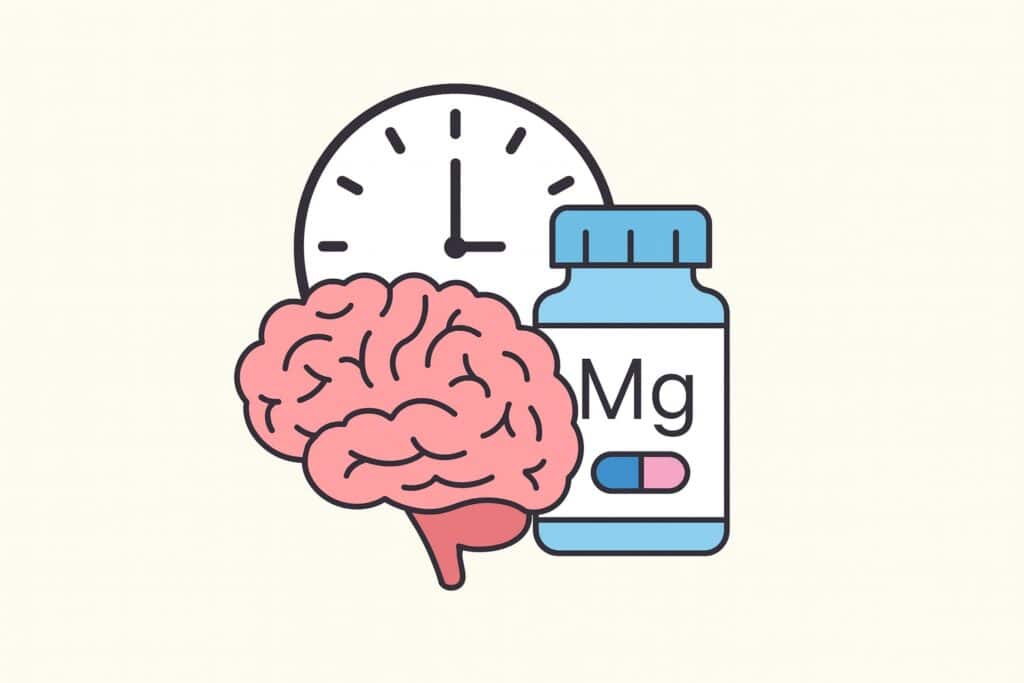The Vitamins and Minerals That Support Energy Indirectly
In the previous blog, we explored the vitamins and minerals that directly participate in ATP production, which is the process

When we think about protecting our brain health, magnesium might not be the first nutrient that comes to mind. Yet, growing evidence suggests that this essential mineral plays a surprisingly important role in maintaining healthy brain function, and could even influence the risk of developing dementia.
Magnesium is involved in over 300 biochemical reactions in the body, including those that regulate nerve signalling, energy production, and inflammation(1). In the brain, it helps stabilize neural activity and supports the function of NMDA receptors, which are critical for learning and memory. Low magnesium levels have been linked to increased oxidative stress and neuroinflammation, both of which are thought to accelerate cognitive decline(2).
Several studies have highlighted a potential link between low magnesium and dementia risk(3,4). For example, low dietary magnesium has been associated with smaller brain volumes and poorer cognitive performance in older adults. Some researchers believe that magnesium deficiency may contribute to the buildup of amyloid-beta plaques and tau tangles, which are hallmarks of Alzheimer’s disease(5,6). While more research is needed, maintaining healthy magnesium levels may be one way to help protect the brain as we age.
Magnesium’s role in brain health may also extend through its impact on sleep. Poor sleep is increasingly recognised as a major risk factor for dementia, since disrupted sleep impairs the brain’s ability to clear toxic proteins. Magnesium has been shown to support deeper, more restorative sleep by calming the nervous system(7). This suggests that part of magnesium’s benefit for long-term brain health could come from helping us sleep better, which is an often overlooked but powerful mechanism for dementia prevention.
Not all magnesium supplements are created equal. Magnesium citrate is one of the most common and affordable forms and can easily be absorbed by the body(8). If you are considering magnesium specifically for brain health, research suggests that magnesium glycinate and magnesium L-threonate are better choices. Magnesium glycinate is gentle on digestion and helps with relaxation and sleep(8), while magnesium L-threonate is particularly effective at crossing the blood-brain barrier, making it more suitable for supporting memory and cognition, thereby reducing the risks of Alzheimer’s and Dementia(9).
For adults, the recommended dietary allowance (RDA) is around 300–420 mg per day, depending on age and sex(1). Many people don’t reach this amount through diet alone, which is why supplementation can be of help. If using magnesium citrate, be mindful of its potential laxative effect; glycinate or threonate may be better tolerated.
Magnesium is found in foods like leafy green vegetables, nuts, seeds, legumes, and whole grains. Despite its availability, many people fall short of recommended intake levels. Whether through diet or supplementation, ensuring adequate magnesium could be a simple, accessible strategy to support both day-to-day cognitive function and long-term brain resilience.
Magnesium isn’t a magic bullet, but the evidence linking it to brain health and dementia risk is compelling. By supporting nerve function, reducing inflammation, and even improving sleep quality, magnesium may help keep our minds sharper as we age. Paying attention to this often-overlooked nutrient could be one of the simplest steps toward protecting your brain for the future.
To receive our Newsletter of Research into Vitamins that may help Memory, reduce Tiredness and reduce the chances of Dementia, Alzheimer’s and Cognitive decline please leave your email address below.
In the previous blog, we explored the vitamins and minerals that directly participate in ATP production, which is the process
Feeling tired even after a full night’s sleep? Struggling with afternoon crashes, brain fog, or low stamina during workouts? While
We use cookies to enhance your browsing experience and to analyse our website traffic. We will not share any of your personal details.